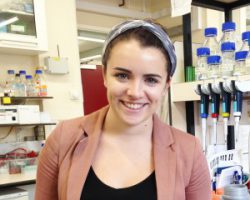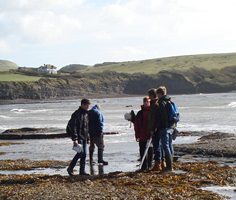
Can we outsmart malaria? A question of tactics
Dara Annett is a PhD student in the Deu group in the Department of Parasitology, currently at the NIMR until the move to the Crick Institute in 2016 Malaria is one of humankind’s oldest battles. Our understanding has increased rapidly in the last century but there are still around 200 million cases reported per year and more than 600,000 deaths [1]. When I was applying for PhDs as a Chemistry graduate I had no specialist biology background, but I knew that I wanted to put my skills to use in a field that had an impact on global health and disease. My work involves identifying new drug targets in the malaria parasite. Although this is very early in the process of drug discovery, I know that it is working towards translational research. This excites me and will keep me coming in every day for 4…


